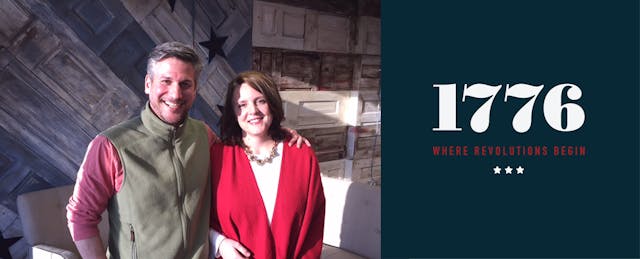It seems like one step towards becoming the next Silicon Valley starts with adopting the nickname. There’s Silicon Beach (Los Angeles), Silicon Alley (New York), Silicon Sound (Seattle), Silicon Roundabout (London) and even Silicon Slopes (Salt Lake City), to name a few.
But there’s one city that doesn’t want to follow that convention. Washington, DC is home to 1776, a seed fund and incubator that supports entrepreneurs working in education, healthcare, transportation and smart cities industries.
“What I respect about 1776 is that it doesn’t need or want to be Silicon Valley,” says Russell “Rusty” Greiff, who is joining the incubator as Managing Director of Education Ventures. The DC tech community, he says, is “very comfortable working in highly regulated and entrenched industries and recognizes the value of public affairs, public policy, global scale, and manage to scale globally.”
Greiff brings a cross-section of entrepreneurial, venture capital and government experience: his resume includes stints at New Market Venture Partners (where he will remain as a senior advisor), Grockit, Sylvan Learning and the federal government. He’ll be tasked with building a network that connects not just educators, entrepreneurs and investors, but also everyone from policymakers and researchers to parents.
“There are real advantages in understanding regulated markets involving legislation, multi-national organizations and government agencies,” he says. “These are highly valuable assets that more sophisticated startups and entrepreneurs are recognizing.”
Supporting entrepreneurs means more than providing capital, says Donna Harris, co-founder of 1776 and former Managing Director at Startup America Partnership. “Our focus is very much on driving scale,” which she believes the incubator can provide through connections to governors, mayors and instrumental corporate players.
Most incubator and accelerator programs run several months and culminate in an investor demo day. But Harris doesn’t believe that makes sense for edtech companies. “We inherently believe that the idea you can take them through a program with a start and end date is flawed,” she tells EdSurge. “The amount of time it takes them to solve their problems and drive scale is often much longer than the duration of these programs.”
1776 wants entrepreneurs to stick around for as long as they feel is necessary--and so is offering a monthly membership. Since its founding in February 2013, more than 250 companies have engaged with the program. (Prices vary from $100 to $600 per person, per month.) In addition to offering a workspace and classes, the incubator also hosts eight to 12 events a week that feature business and government leaders including US President Obama and UK Prime Minister, David Cameron. “Every big player comes to DC, and it gives us an opportunity to bring to these entrepreneurs major heads who talk to Congress and the White House,” says Harris.
While Harris says 1776 has prioritized what she calls “social capital” over venture capital, entrepreneurs still need financial support, too. 1776 is set to close a $25 million fund by the summer, from which it will make seed investments from $50K to “a couple hundred thousand” dollars, says Harris.
The fund currently counts five edtech startups in its portfolio: AlwaysPrepped (acquired by Alma earlier this year), edbacker, eduCanon, lingual.ly and StudySoup.
One of Greiff’s priorities at 1776 will be to expand connections between edtech entrepreneurs in the US and abroad. “Innovation hubs are not just limited to US,” he says. In addition to building a “Startup Federation” of 18 incubators around the world, 1776 also recently partnered with the Global Entrepreneurship Network, which spans cities in 157 countries.
These connections will help 1776 dramatically expand its global startup competition. Now in its second year, the “Challenge Cup” is taking place in 16 cities around the world, beginning with an one-week entrepreneurial education program and culminating in a startup competition. Four winners from each city (one each from the education, healthcare, transportation and smart cities verticals) then compete in the finals in Washington, DC. (Last year, eduCanon, a local DC-based edtech startup, won grand prize, which comes with $150K in investment funding.)
Creating a global network of entrepreneurship is critical to “eliminating the problem of geography and the ‘old boy’s network,’” says Harris, who believes an entrepreneur in Toledo, OH should have the same access to resource and expertise as a counterpart in a major urban city.
Today, Greiff says “there is a clearer pattern for how companies can see earlier stage success or failure. VC firms are realizing that and that’s ultimately a better thing.”
He believes the ingredients for startup success can still be found in the existing education system that many entrepreneurs are trying to work around. “Even with all the talk around innovation and disruption, often time companies are still confined by the current structure of our education system,” he observes. “I’m really excited to find global entrepreneurs who are willing to work within the system to try to scale.”


